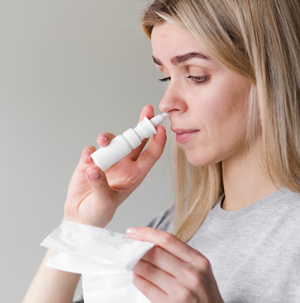Simple Daily Habits for Long-Term Sinus Pressure Relief
الجسم
Introduction
Many people suffer from recurring sinus pressure due to allergies, colds, or changes in weather. This pressure can feel like a heavy weight in your face and often leads to fatigue or headaches. While over-the-counter medications provide temporary relief, daily natural strategies can offer long-lasting sinus pressure relief . One of the easiest and most accessible habits is the regular use of a saline nasal rinse.
Understanding Chronic Sinus Pressure
Chronic sinus pressure results from prolonged inflammation or obstruction in the sinus cavities. The issue becomes more than just a stuffy nose; it turns into ongoing discomfort, disturbed sleep, and difficulty concentrating. To manage this effectively, it’s important to understand both the cause and prevention methods.
Saline Nasal Rinse for Daily Use
A saline nasal rinse is a straightforward method that flushes out the nasal passages, removes debris, and moistens dry tissues. It's particularly helpful for those exposed to pollutants, allergens, or frequent infections.
You can prepare your own rinse by combining non-iodized salt with distilled or previously boiled water. Use a neti pot, nasal spray, or squeeze bottle to perform the rinse. It’s best to make this part of your daily routine, especially during allergy season or after exposure to irritants.
Breathing Exercises for Sinus Relief
Practicing deep breathing techniques can help open the sinuses and improve airflow. Techniques like alternate nostril breathing, used in yoga, encourage better circulation and reduce nasal inflammation.
Spending a few minutes a day doing these exercises can help maintain open sinuses and reduce reliance on medications or treatments.
Keep Your Living Space Humidified
Dry indoor air, especially during winter, can irritate your nasal passages and lead to increased congestion. A humidifier helps add moisture to the air, preventing sinus linings from drying out and thickening the mucus.
Remember to clean your humidifier regularly to avoid bacterial buildup that can worsen sinus symptoms.
Warm Compress Therapy
Applying a warm compress to the sinus areas (forehead, nose, and cheeks) can help ease pain and encourage drainage. It’s a natural and comforting method, particularly helpful before bed or after a saline rinse session.
Exercise and Movement
Mild physical activity increases circulation and can assist in draining the sinuses. Going for a walk, practicing yoga, or doing light aerobic exercises helps reduce inflammation and improves breathing.
Stay Away from Common Irritants
Secondhand smoke, strong chemical odors, and airborne allergens can all trigger sinus reactions. Avoiding these irritants whenever possible is essential to reducing the chances of recurring sinus pressure.
Anti-Inflammatory Nutrition
Foods that reduce inflammation — like turmeric, garlic, ginger, and omega-3-rich options such as salmon and flaxseed — can support sinus health. Avoiding dairy, refined sugar, and heavily processed foods also helps minimize mucus production.
Conclusion
Daily attention to sinus health can dramatically reduce the frequency and severity of sinus pressure. With habits like using a saline nasal rinse, managing your indoor air quality, and eating an anti-inflammatory diet, you can maintain clear sinuses and live more comfortably. Consistency is key — small daily actions create big results when it comes to long-term sinus pressure relief.








تعليقات